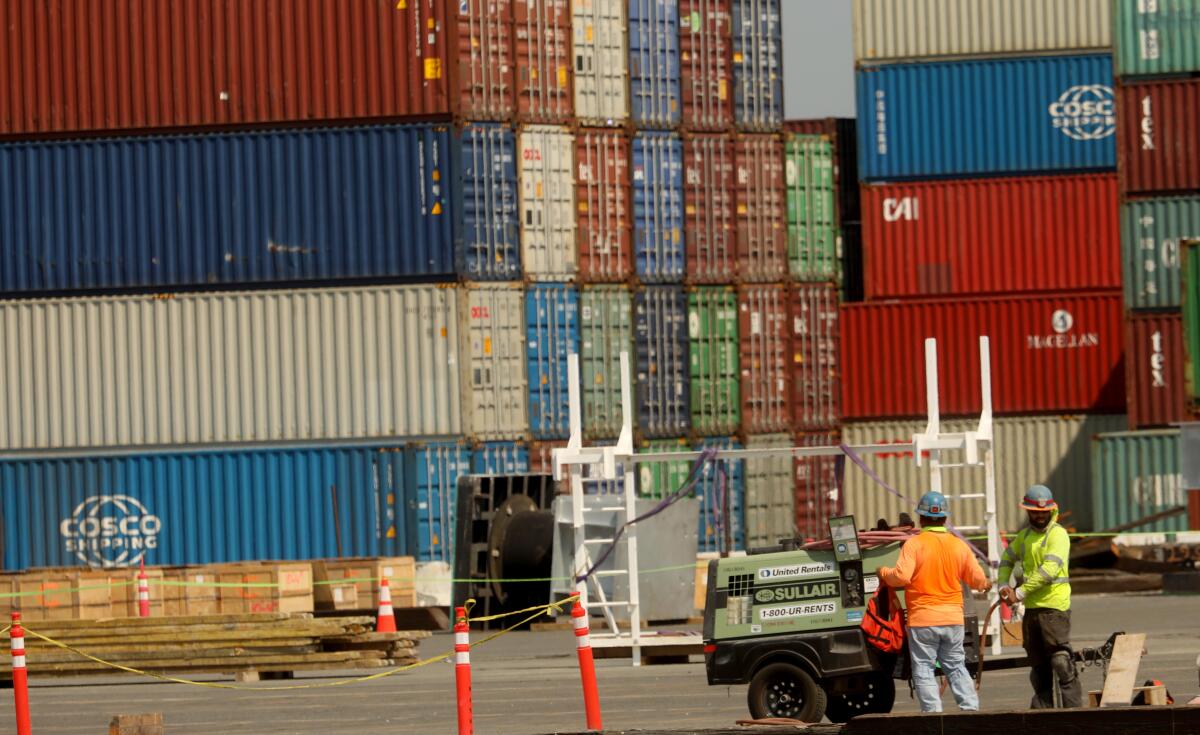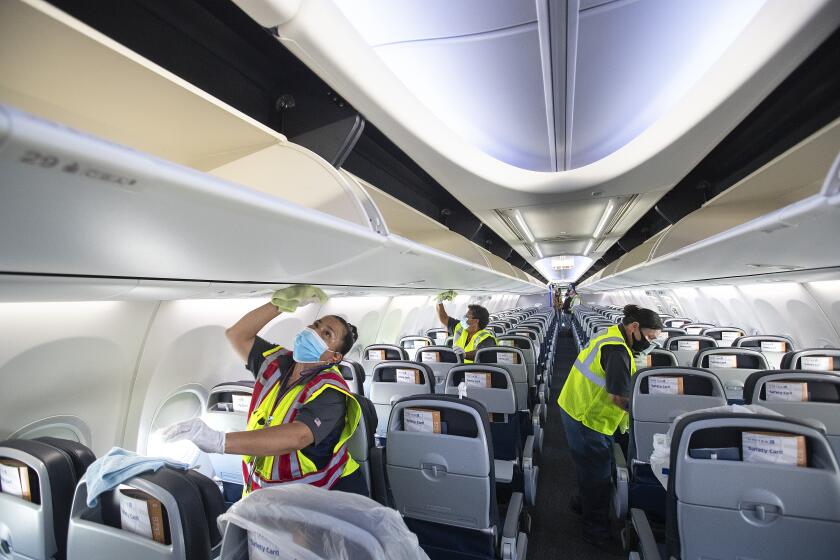China’s COVID port terminal shutdown raises fear of worldwide shipping slowdown

A COVID-19 outbreak that has partially shut one of the world’s busiest container ports is heightening concerns that the rapid spread of the Delta variant will lead to a repeat of last year’s shipping nightmares.
The Port of Los Angeles, which saw its volumes dip because of a June COVID outbreak at the Yantian port in China, is bracing for another potential decline because of the latest shutdown at the Ningbo-Zhoushan port in China, a spokesman said. A major terminal at Ningbo-Zhoushan, the world’s third-busiest port, was closed Wednesday after a worker tested positive for the Delta variant of the coronavirus.
As the Delta variant spreads, employers are increasingly establishing vaccination mandates for their workers. Here’s how those policies look.
Even with that cargo decline, the L.A. port set a June record for number of freight containers handled as coronavirus-related limitations on economic activity were lifted nationwide. The neighboring Long Beach port also has been posting record container volumes.
China‘s partial port closures come as the peak shipping season gets started, with retailers stocking up for back-to-school and holiday shopping. Strong consumer demand for imported goods has been driving the record traffic — and containership traffic jams — at Southern California ports, which handle nearly half of U.S. imports from Asia.
Anton Posner, chief executive of supply-chain management company Mercury Resources, said that many companies chartering ships are already adding COVID contract clauses as insurance so they won’t have to pay for stranded ships.
Although container shipments dipped in June from May’s record, it seemed as if things were just starting to calm down, “and we’re now into Delta delays,” Emmanouil Xidias, a partner at Ifchor North America, said in a phone interview. “You’re going to have a secondary hit.”
The shutdown at Ningbo-Zhoushan is raising fears that ports around the world will soon face the same kind of outbreaks and COVID restrictions that slowed the flow of everything from perishable food to electronics last year as the pandemic took hold.
Infections are threatening to spread at docks just as the world’s shipping system is already struggling to handle unprecedented demand with economies reopening and manufacturing picking up.
The Ningbo-Zhoushan port said in a statement late Thursday that all other terminals aside from Meishan have been operating normally. The port is actively negotiating with shipping companies, directing them to other terminals, and releasing information on a real-time data platform, it said.
Some ships that docked at the Meishan terminal before the closure are suspending cargo operations until the terminal reopens, according to a notice sent by shipping line CMA CGM to shippers.
“We are working on contingency plans in order to mitigate the likely impact on our vessel schedules and cargo operations,” Orient Overseas Container Line, a subsidiary of Orient Overseas International Ltd., said via email.
Container prices have soared, with the benchmark cost of shipping a container from Shanghai to Los Angeles up more than 220% over the last year to $10,322 this week.
The Baltic Dry Index, which serves as a global benchmark for bulk shipping prices, is up more than 10% since a month ago as the Delta variant began to spread rapidly. Although there haven’t been significant effects on U.S. ports, the problems in China could hurt companies that rely on container exports from the nation.
More to Read
Inside the business of entertainment
The Wide Shot brings you news, analysis and insights on everything from streaming wars to production — and what it all means for the future.
You may occasionally receive promotional content from the Los Angeles Times.











